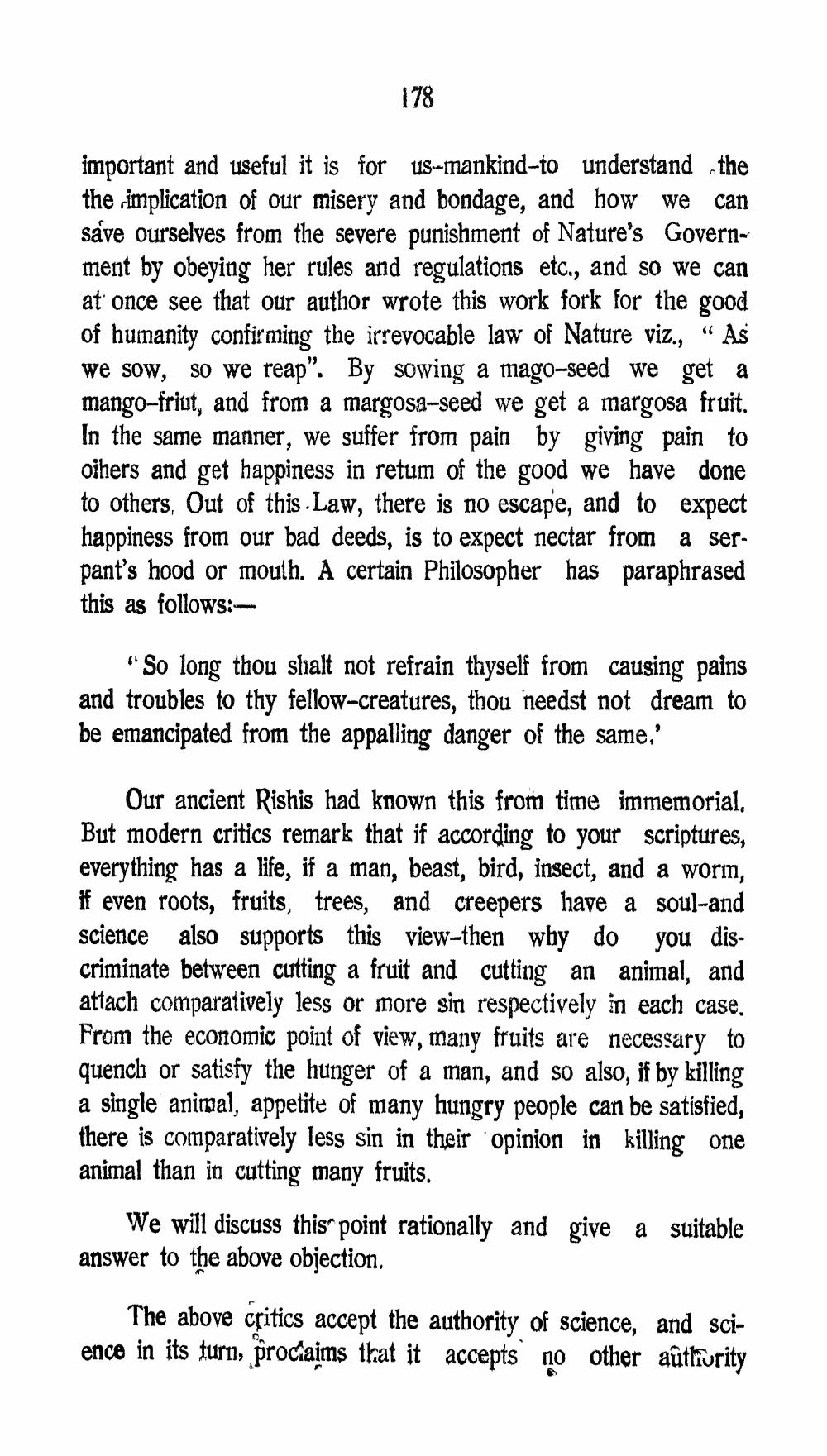________________
178
can
46
important and useful it is for us-mankind-to understand the the implication of our misery and bondage, and how we save ourselves from the severe punishment of Nature's Government by obeying her rules and regulations etc., and so we can at once see that our author wrote this work fork for the good of humanity confirming the irrevocable law of Nature viz., As we sow, so we reap". By sowing a mago-seed we get a mango-friut, and from a margosa-seed we get a margosa fruit. In the same manner, we suffer from pain by giving pain to oihers and get happiness in retum of the good we have done to others, Out of this Law, there is no escape, and to expect happiness from our bad deeds, is to expect nectar from a serpant's hood or mouth. A certain Philosopher has paraphrased this as follows:
"So long thou shalt not refrain thyself from causing pains and troubles to thy fellow-creatures, thou needst not dream to be emancipated from the appalling danger of the same,'
Our ancient Rishis had known this from time immemorial, But modern critics remark that if according to your scriptures, everything has a life, if a man, beast, bird, insect, and a worm, if even roots, fruits, trees, and creepers have a soul-and science also supports this view-then why do you discriminate between cutting a fruit and cutting an animal, and attach comparatively less or more sin respectively in each case. From the economic point of view, many fruits are necessary to quench or satisfy the hunger of a man, and so also, if by killing a single animal, appetite of many hungry people can be satisfied, there is comparatively less sin in their opinion in killing one animal than in cutting many fruits.
We will discuss this point rationally and give a suitable answer to the above objection.
The above critics accept the authority of science, and science in its turn, proclaims that it accepts no other authority




